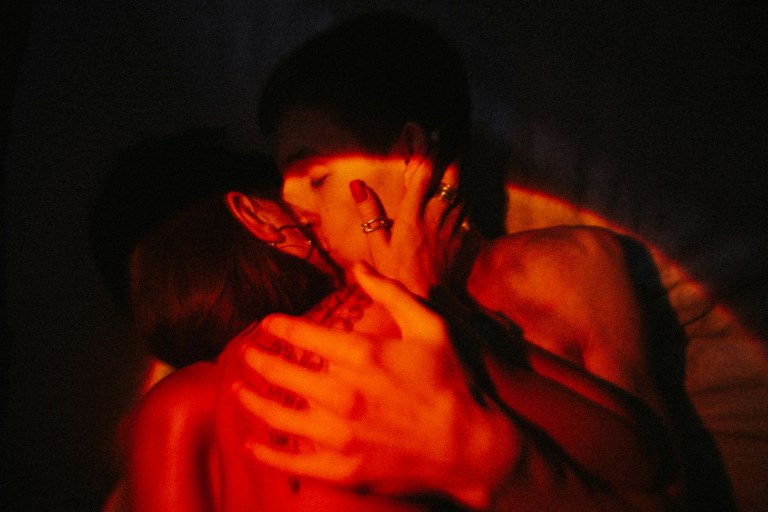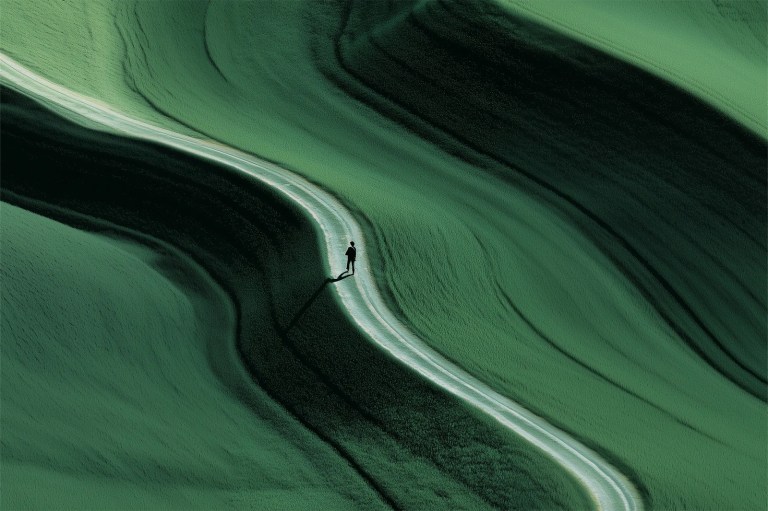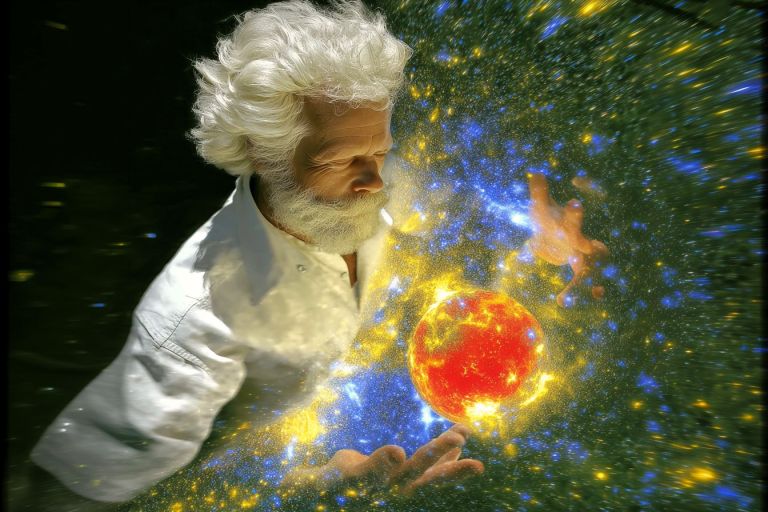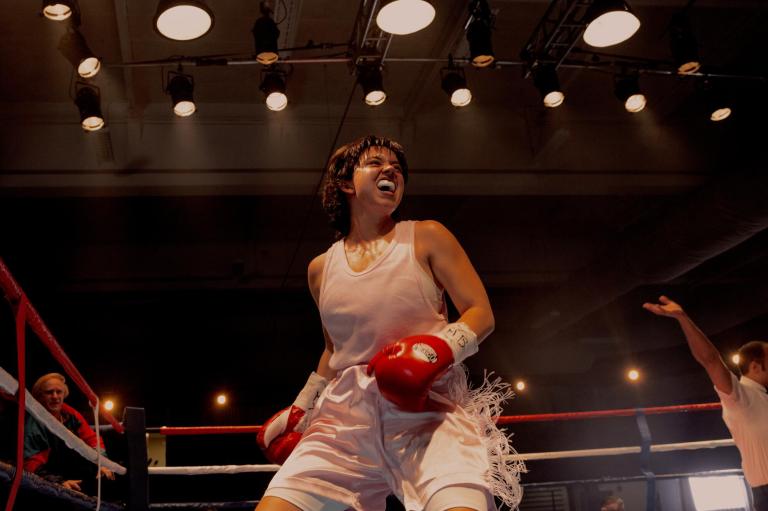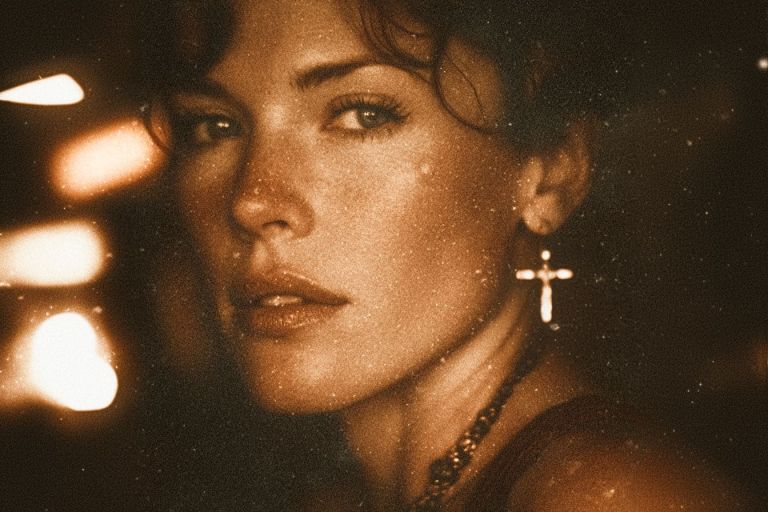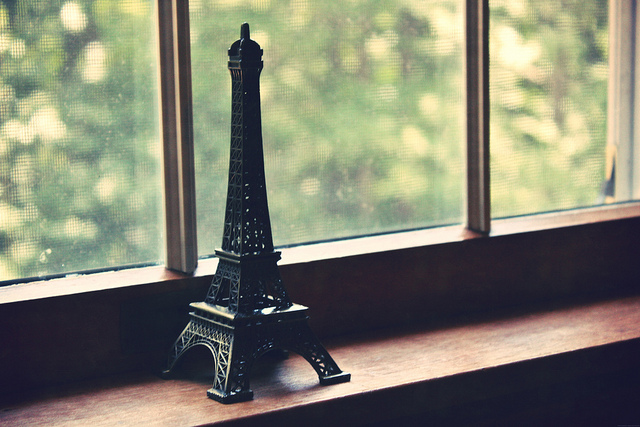
Romance Is All That Matters
Indeed, if love is one’s end goal of life -- if it is what will bring us happiness and banish loneliness -- then why must it also be so dreadful?
My ideal morning would be to wake up at the Ritz Hotel in Paris, a girl whom I love by my side. Perhaps we would call for room service or perhaps we would just lie in bed a few moments longer, getting up only to push the curtains aside to breathe in the Seine and the Musee d’Orsay and to experience the mastery of life one can only feel when one is high above the world and deeply in love.
Romance, it seems, has become a new sort of religion, a reason to go on in an increasingly banal world. We are always hoping that today will be the day that we bump into someone on the street and experience a coup de foudre, love at first sight, locking eyes with someone in a way that tenderly warms us like a cup of hot tea on a blustery evening. So we try people on like a series of new jackets we know we’ll never buy, wondering how we look next to them, flipping through men or women without great account for their feelings or even our own. It can get to the point where dating prospects seem to be merely products, which we’re eager to consume but just as eager to throw out once we’re done.
The notion of “trading up” is similarly rampant, and technology like online dating and in-your-pocket applications like Tinder only add to it. It can get to feeling like there is no one perfect out there even as you survey a sea of qualified people. So too goes the erroneous belief that if you’re single, it’s for a reason. It can all become disastrously frustrating, and, yet, this isn’t even the hardest part. For at this point one still has a romantic ideal — one still has their dream of the Ritz and the perfect partner. One is still searching for someone that she is sure will make her happy, like someone eyeing that perfect career or that around-the-world trip or that diamond necklace — the one change that will make everything else all right. Yet, sooner or later, many give up, believing that keeping a hard heart is the safest bet.
In the film Blue is the Warmest Color, which won the Palme d’Or at Cannes this May, there are two main characters, who, while quite different, end up falling love. Adèle, who wants to become a teacher, is slightly older than the blue-haired Emma, a more cosmopolitan, less woundable character. The French title is La Vie d’Adèle — Chapitres 1 et 2, a name more sterile and less steeped in romance, which, considering the number of fights and hurt feelings in the film, is perhaps more appropriate. While Emma opens up Adèle’s sexuality she also proves that we cannot rely on one person for everything, and, as Anthony Lane put it, “It takes two to tango, but many more to make a dance of life.”
Indeed, if love is one’s end goal of life — if it is what will bring us happiness and banish loneliness — then why must it also be so dreadful? Perhaps it is because the constant gnawing fear that it is only temporary, that love is never unconditional, merely a fleeting feeling that must be perpetually renewed. Love is based on the passing feelings of just one other person, feelings over which we’ve little control, and so it is brittle and breakable like a delicate vase. It can open our eyes to an entirely new world, but it can also make us want to forever close them. Love, like flashes of lightning, can both brighten and burn.
Perhaps this begins to explain why we can be miserable amidst a perfect moment. The times when we are happiest are also the saddest because we know we’ll never feel so content again. In a relatively unknown personal essay called “My Lost City,” F. Scott Fitzgerald reflected on his surprise success as a young celebrity author in New York City. He wrote, “I remember riding in a taxi one afternoon between very tall buildings under a mauve and rosy sky; I began to bawl because I had everything I wanted and knew I would never be so happy again.” Like beauty and youth and success and so many other wonderful things in this world, love is never guaranteed nor does it seem to last.
And yet, we mustn’t believe that just because love can evaporate at a moment’s notice means that it’s no longer something to be prized or chased. To be miserable when everything is perfect is still a conscious decision, and if we, like Fitzgerald, like Adèle, choose to dread the fall rather than appreciating the glorious upswing then we’ve only ourselves to blame. Too often we are contented with the idea of romance, with the idea of a coup de foudre, but we’re wholly disenchanted by the actual process, by the reality of love and the reality that two people don’t always see eye-to-eye.
There’s a rather famous rococo painting by Jean-Honoré Fragonard, called “L’Escarpolette” (or “The Swing”). In it, a woman wearing a flowing pink gown swings through the trees, kicking her shoe towards a statue of Cupid. Although she is well-lit and perfectly at the center of the painting, there are two men on either side of her, both hidden in the shadows. Her husband, on the right, has just pushed her, and, on the left a young man, no doubt in love with her, reaches out for her. I’ve always wondered which way she is swinging. She’s being pushed towards the young man, but it appears that she’s reached the apex of her swing and that she’ll soon be returning to her husband.
I think the way you see the painting depends on how you see love: Are people constantly swinging from one person to the next, looking to “trade up,” to find someone younger who can adore them more? Or is love perhaps something steadier, something we dearly crave but that we also understand is worth being loyal over? Do we close our hearts off because we know how easy it is for those we love to swing along to the next person, or do we approach each new romance with freshness and the trust that this could, indeed, last forever?
If you see the painting the first way then even when things are perfect you’ll be on the lookout for the storm in the distance. Yet, if you believe that love doesn’t always evaporate, or even if it does, that it was worthwhile — that the happiness in the present makes up for the potential misery in the future — then, perhaps, just perhaps, you’ll begin to find happiness in yourself, in love, in good times, and in bad. ![]()
